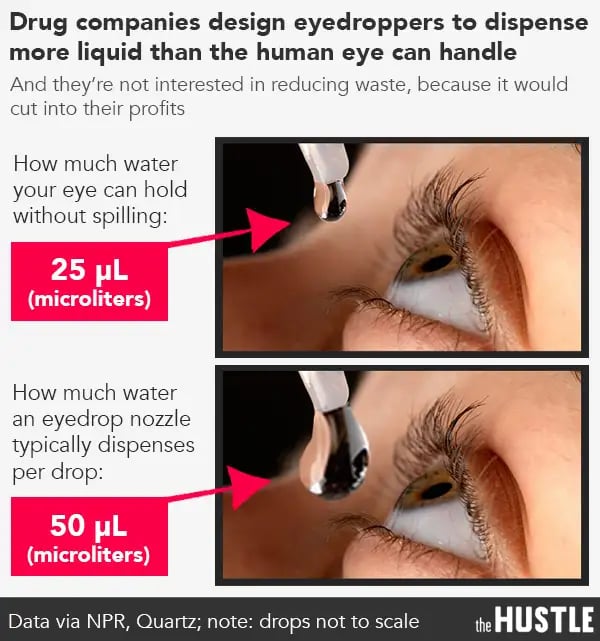Big drug companies aren’t exactly known as beacons of morality — so it comes as no surprise they’ve been duping us in the eyedrop department.

As NPR and ProPublica report, the human eye can only handle about 25 microliters (μL) without spillage — and it can only absorb 7 μL. Yet, the $3.4B eyedrop industry intentionally designs bottles that dispense drops of up to 50 μL.
Why? So consumers run out faster and have to buy more.

Despite numerous studies over the past 25 years showing that most of the typical eyedrop liquid is wasted — and despite proposals from good-guy ophthalmologists to design less wasteful products — the industry has refused to change.
Because, of course, reducing waste cuts into profits.
As a result, consumers take on the burden of additional purchases. And that’s a pretty big deal, considering that some glaucoma eyedrops run up to $295 per bottle.

